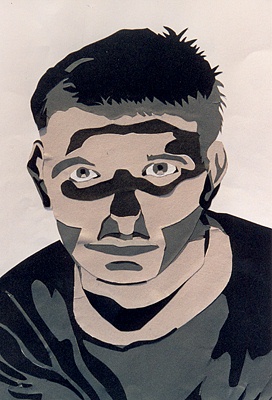All Nonfiction
- Bullying
- Books
- Academic
- Author Interviews
- Celebrity interviews
- College Articles
- College Essays
- Educator of the Year
- Heroes
- Interviews
- Memoir
- Personal Experience
- Sports
- Travel & Culture
All Opinions
- Bullying
- Current Events / Politics
- Discrimination
- Drugs / Alcohol / Smoking
- Entertainment / Celebrities
- Environment
- Love / Relationships
- Movies / Music / TV
- Pop Culture / Trends
- School / College
- Social Issues / Civics
- Spirituality / Religion
- Sports / Hobbies
All Hot Topics
- Bullying
- Community Service
- Environment
- Health
- Letters to the Editor
- Pride & Prejudice
- What Matters
- Back
Summer Guide
- Program Links
- Program Reviews
- Back
College Guide
- College Links
- College Reviews
- College Essays
- College Articles
- Back
Read the book, or wait for the movie
Reading and television/cinema each provide, entertaining stories; however, reading enables its audience to become more intimate with a story by creating their own images. Thousands of years ago, people wrote and read reports on events, and time refined their crude form of writing into the gold we have inherited today. The speed, at which a well-written story unfolds, creates atmosphere and draws the reader closer to characters, all within a surmountable amount of time. Journalism has always favored written material for their stories on current-events around the world. With such a vast legacy behind writing, reading well-written stories is truly a gift of the ages.
The ancient art of writing has been around for thousands of years, and with it reading. Throughout the eons, writing has improved greatly all-around and produced timeless pieces of literature. When these great masterpieces were finished, nothing further was been added. One does not find someone going back and changing certain details of “A Tale of Two Cities” or Virgil’s “Aeneid.” Today’s books are exactly like the original in content. Television, however, came about fairly recently in history and still has a long way to go. The variations of the same story are insane. The Sci-fi channel has three different versions of Hercules, and numerous different versions of “A Tale of Two cities” and “The Iliad” produced down through the years. It could be very confusing to the average moviegoer as to which version finds its base in the original, many times none of them. Not only that, but Television/cinema create remakes of their own movie. Many times audiences disapprove of movie remakes, because they are inferior versions of the original film: such as “Planet of the Apes” or “Psycho”.
The speeds at which both reading and television/cinema present their story create fundamental differences in their audiences’ image of a work. Reading a book could take days or even weeks to accomplish. While reading, characters expose more of themselves to the audience with every page, forging a relationship between reader and character. After weeks of reading a book, the audience may have, one could say, found a new friend. Television/Cinema does not have the same luxury of time as literature; their period ranges from a half-hour to a little over three hours. Yet with their limited time, they attempt to unfold a story, build audience-character bonds, and entertain. They do an excellent job of unfolding a story and entertaining, considering the time difficulties they have, however they cannot build relationships in three hours like a good Stephen King book can in a month.
Many Americans still get their news through the newspaper or some written medium online. This could be attributed to the ease of presenting material over the web. All one needs is a web page to present their story. CNN has a massive archive of written news and reading all their material is as simple as going online. However, reading a news report, online or on paper, gives one a somewhat sterile view of a news story. When CNN, for example, used their cameras to show floods in New Orleans the visual experience struck the audiences with horror. When it comes to actual world events, a visual feedback reveals more of the situation, than audience imagery. The availability of live television also provides quick updates to new events. However, Camera cannot be everywhere to capture events as they occur. Written articles take up the slack created by camera shortages, and provide informative reading material for audiences worldwide.
Reading material, in the end, will always depend on the author for entertainment or information quality. A good author will, many times, led the reader to project their own unique vision onto a work, creating a world unique to themselves: an attribute no movie emulates. Although great novel based movies exist, those who relishes in growing more intimate with the story should read the book.

Similar Articles
JOIN THE DISCUSSION
This article has 0 comments.
